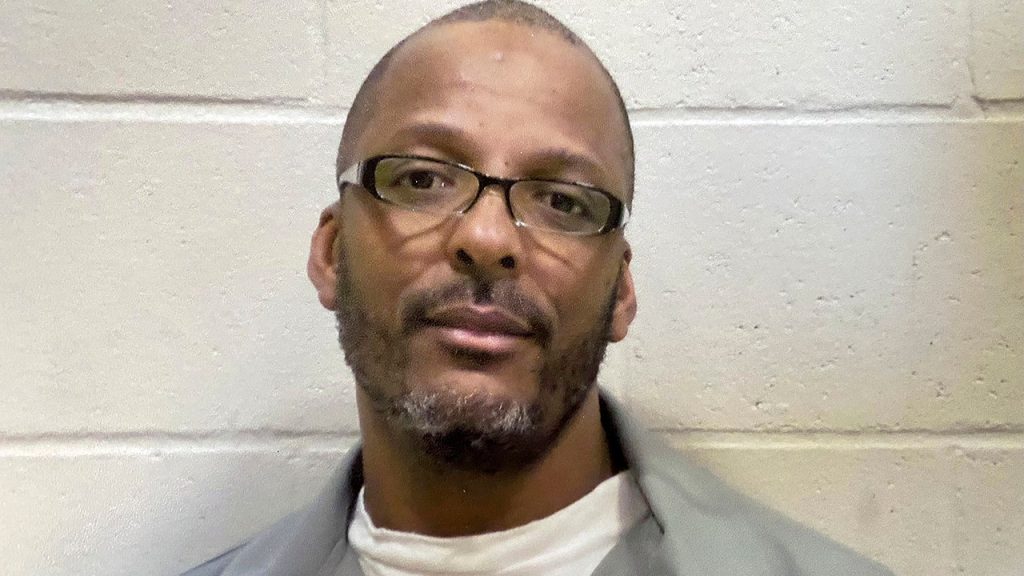Christopher Dunn has spent 33 years in prison for a murder he claims he did not commit. St. Louis prosecutors now believe Dunn is innocent, and a hearing was held to determine if he should be released. Dunn, who is serving life without parole, was convicted of first-degree murder in the death of 15-year-old Ricco Rogers based mainly on the testimony of two boys who later recanted their statements, saying they were coerced by police. Dunn’s attorney argued that he was at his mother’s house at the time of the shooting, watching TV with his family. However, the Assistant Attorney General maintains that evidence shows Dunn was the shooter.
A Missouri law adopted in 2021 allows prosecutors to request hearings to address potential wrongful convictions, leading the St. Louis Circuit Attorney to file a motion to vacate Dunn’s guilty verdict. Despite no physical evidence linking him to the crime, the two boys claimed they saw Dunn near the scene of the shooting. Dunn was 18 years old at the time of the incident, and the case has been ongoing for over three decades. In 2020, a judge agreed that Dunn would likely be found not guilty based on new evidence but cited a previous ruling that only death row inmates could claim actual innocence.
The case of Christopher Dunn parallels others in Missouri where individuals have been wrongfully convicted and incarcerated for decades. Kevin Strickland was released in 2021 after spending over 40 years in prison for three killings in Kansas City. Similarly, Lamar Johnson was freed after nearly 28 years for a murder he maintained he did not commit. Investigations in these cases revealed coerced witnesses, false testimony, and lack of physical evidence linking the defendants to the crimes. Furthermore, a man named Marcellus Williams, who narrowly escaped lethal injection for a murder conviction, is also awaiting a hearing to vacate his conviction based on DNA evidence that does not match the crime scene.
The Assistant Attorney General in Dunn’s case argued that he was the shooter despite changing witness testimonies, emphasizing that Dunn’s story was not convincing. St. Louis prosecutors have indicated a strong belief in Dunn’s innocence, prompting the hearing to review his case. The availability of new laws addressing wrongful convictions in Missouri has led to the release of individuals who were unjustly imprisoned for crimes they did not commit. The recent movement in the legal system to rectify wrongful convictions highlights the importance of evidence, witness testimonies, and ensuring justice is served. Dunn’s case, along with similar instances in the state, sheds light on the challenges faced by those wrongfully accused and the significance of continually seeking the truth in legal matters.
The fight for justice in wrongful conviction cases extends beyond Christopher Dunn’s situation to include other individuals in Missouri who have been exonerated after spending decades in prison. The commitment to reviewing cases of potential innocence, examining new evidence, and addressing coerced witness statements underscores the importance of maintaining integrity in the legal system. The impact of wrongful convictions not only infringes upon the rights of those unjustly incarcerated but also reflects on the overarching goal of upholding justice and ensuring fair treatment for all individuals involved in legal proceedings. Dunn’s ongoing battle for exoneration represents a broader narrative of seeking truth and uncovering miscarriages of justice that have profound consequences on the lives of those wrongfully accused.
As the hearing to determine Christopher Dunn’s fate unfolds, the legal system in Missouri faces a critical juncture in evaluating wrongful convictions and advocating for justice. The support from St. Louis prosecutors, the adoption of new laws addressing wrongful convictions, and the ongoing scrutiny of cases involving potential innocence exemplify a dedication to rectifying past wrongs and upholding the principles of fairness and equity in legal proceedings. Dunn’s prolonged incarceration, along with the experiences of other individuals who have been wrongfully convicted, underscores the need for continuous efforts to safeguard against injustice, navigate complexities in legal processes, and ultimately ensure that justice is served for all individuals involved. The outcome of Dunn’s case will not only impact his life but also contribute to larger conversations about the significance of seeking truth, upholding integrity, and pursuing justice in the legal system.


